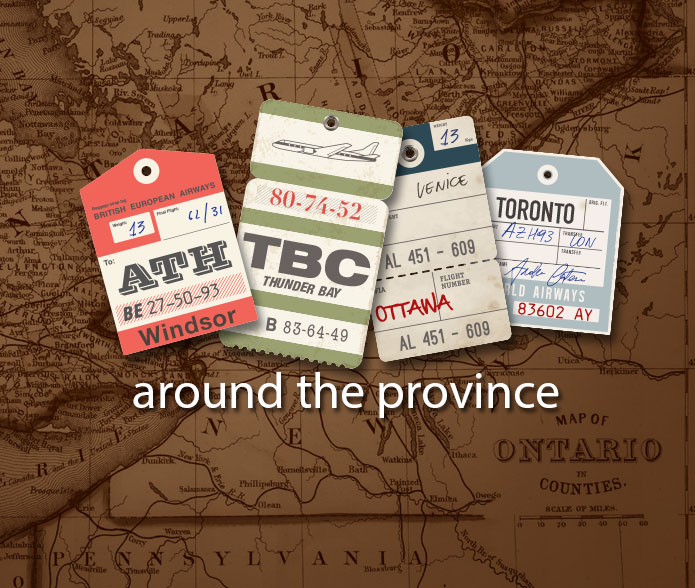Learn a librarian’s research into 2SLGBTQ+ Libraries and Archives, preserving queer history, and current activism efforts.

From the Hiring Line: Top Tips for Interview Success
If you were to take a poll asking what the most nerve-wracking aspect of the job search was, most people would say the job interview experience. A lot is riding on your ability to connect with your interviewers and convince them that you are the only person they should choose to fill the position. So, how can you ease the stress of the situation and make a good impression? We have six tips that apply to nearly every interview for information or library jobs out there.
#1: Prepare concrete examples of your work behaviour in advance
Most interview questions are what we call behavioural interview questions. These questions ask you to describe your past behaviour in situations, in the belief that knowing about your past behaviour will help the search committee determine your suitability for the job. Be prepared to tell interviewers stories of your real-life experiences in different situations. Choose those stories in advance so that you are prepared to provide specific examples of real-life situations for typical behavioural interview questions that come up: interpersonal relationships, communication, teamwork, coping with setbacks or failure, leadership, etc. You can find many examples of typical questions on the web, such as “Tell us about a time you disagreed with a co-worker. How did you resolve your differences?”
#2: Know yourself and be able to talk about how you learn
In addition to the hard and soft skills interviewers are looking for a candidate to possess, we are also almost always looking for a candidate to show evidence of self-reflection: the ability to learn from experience and to alter one’s own behaviour for continual improvement. Practically every question you are asked is also silently asking, “What did you learn from this experience and how has it shaped your approach to work?” After you’ve chosen the specific concrete examples of your work behaviours, think about what you learned from those experiences and take the opportunity to tell your interviewers what that was when the opportunity arises in the interview.
#3: Don’t fake it!
If you’re new to the profession or to the work world, you will inevitably be asked to describe your behaviour for a situation you haven’t encountered. Be upfront and let interviewers know you haven’t encountered a situation like this yet, and – don’t stop there! Go on to describe how you think you would react, respond or behave in a situation like that based on something similar from your real-life experiences or what you’ve learned from others who have been in similar situations. Describe the resources you would draw on (e.g. advice from a manager or mentor) to help you deal with that situation. This is a good time to show your self-reflection and problem-solving abilities.
#4: Bring a pen and some paper to take notes during the interview
You can jot down key words from the interview questions, organize your thoughts on paper, and then speak. This is a particularly good way for interviewees who get really nervous about interviews to slow things down and impose a bit of control over the situation. The committee will not be surprised or worried about this behaviour and may even be impressed by your diligence and preparation.
#5: Prepare two to three questions to ask the interviewers at the end of the interview
This is a chance for you to show your interest in the position and to get a better idea about what it would be like to work in this library or organization. Make sure at least one of the questions you ask is about a bigger picture issue rather than something you can work out later if you’re offered the job such as vacation time and benefits. The kinds of questions you ask at the end of your interview tell your search committee a great deal about you, and how your interviewers answer them can give you clues about the organization. Some of my favourites are:
- What do you enjoy most about working here?
- What excites you about this organization? What is the best reason to come work here?
- What do you think will be the biggest challenges facing the successful candidate in this position?
#6: Remember that you are also interviewing the search committee and everyone else you meet that day!
Before the interview (ideally before you even apply for the job), think about what you want in a workplace and the job you will do every day, day in and day out. Then when you are at the interview, be observant, ask careful questions, and determine if this would be a good fit for you. While any job right out of school or when seeking a job-change seems like it would be a blessing, working at a place that doesn’t suit your personality or give you the kind of experience you are hoping to get to further your career is going to be pretty joyless. Don’t sell yourself short – really think about whether you can work with these people before you say “yes.”
Robin Sakowski is the Manager of Access Services at the University of Guelph Library. She is a member of the OLA Mentoring Committee and Co-Coordinator of the OLA Super Conference Career Centre for 2017. A veteran of many search committees, Robin is a firm believer that being prepared for your interview and being yourself once you’re there make for the best possible interview experiences. She can be reached at rsakowsk[at]uoguelph.ca


